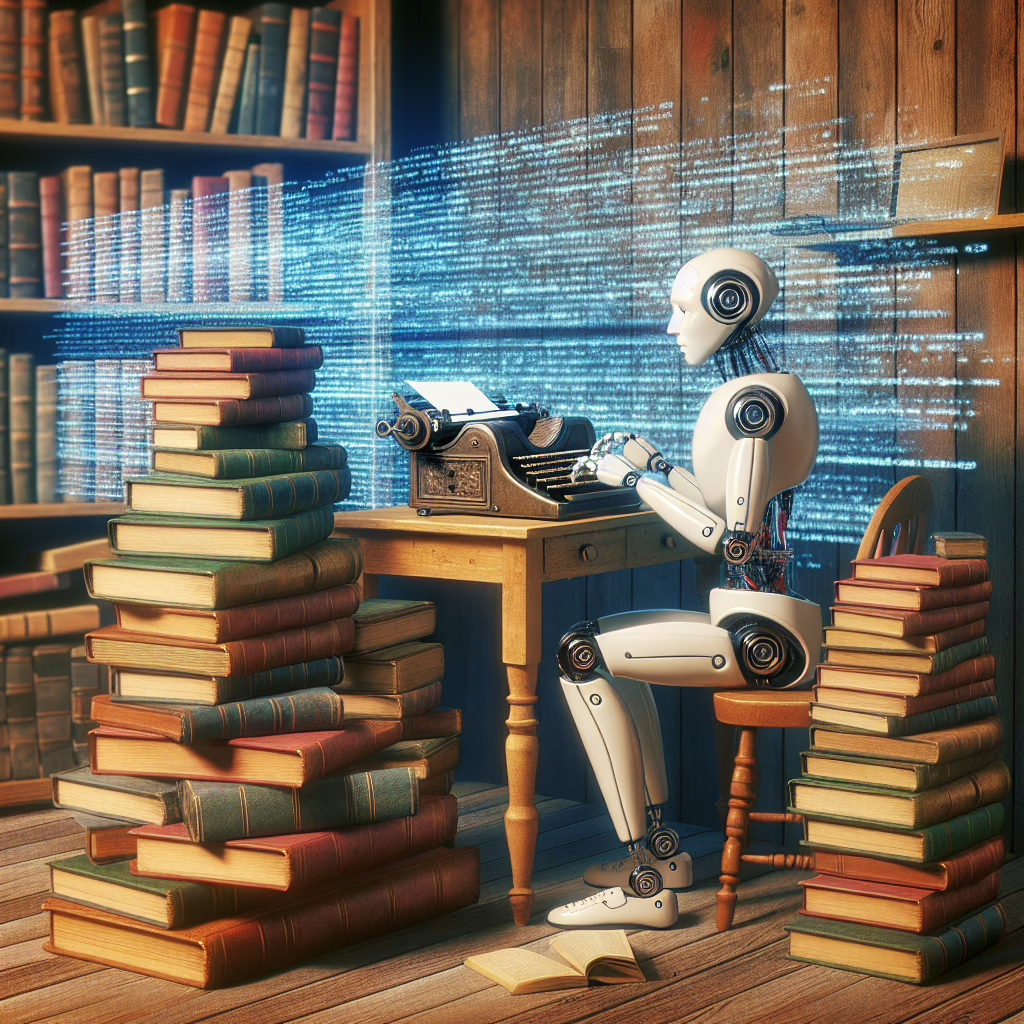In a world where digital manipulation reigns supreme, one might wonder if our favorite books are actually penned by human hands or by clever algorithms. The recent revelation that an acclaimed book about digital manipulation was actually written by AI has sent shockwaves through literary circles. Yes, you heard it right—AI has taken a turn at the keyboard, and it’s not just for your average grocery list anymore!
The Rise of AI in Literature
Imagine sipping your morning coffee, flipping through the pages of a book that spills secrets about the art of digital manipulation, only to discover that the author is a sophisticated machine! While this might sound like something straight out of a sci-fi novel, it’s happening right now in 2025. AI technology has advanced so rapidly that it can craft entire narratives, complete with emotional depth and intricate plots.
However, before you toss your library card out the window, let’s take a closer look at what this means for writers and readers alike. The rise of AI in literature isn’t about replacing authors; it’s about redefining creativity. Think of it as having a super-smart writing buddy who can help brainstorm ideas or generate content at lightning speed—just without the coffee breaks!
What Does Digital Manipulation Mean?
To truly appreciate this twist of fate in the literary world, we must first understand digital manipulation. In simple terms, it refers to the ways in which digital tools and techniques alter our perception of reality. This can range from photoshopping vacation pictures to creating entirely fictitious personas on social media. With AI stepping into the writing realm, it begs the question: how much manipulation is too much?
When an AI writes about digital manipulation, does it have a unique perspective or merely regurgitate information fed into its circuits? The answer may lie in how we interpret its creations. If an AI can craft a compelling narrative that resonates with readers while revealing truths about digital manipulation, should we celebrate its capabilities or worry about our own creativity diminishing?
The Impact on Authors and Readers
For authors, this development could feel like a double-edged sword. On one hand, AI can assist with research, plot development, and even character arcs—imagine having an ever-available brainstorming partner who never sleeps! On the other hand, some writers may fear that their unique voice could be drowned out by the sheer volume of AI-generated content flooding the market.
Readers are also caught in this whirlwind of innovation. As we dive into books crafted by algorithms, we might question whether we’re consuming art or just another product of digital manipulation. This raises an interesting point: does knowing a book was written by AI change our reading experience? If we connect emotionally with its words regardless of their origin, is that not the true essence of storytelling?
The Future: Humans and Machines Collaborating
Looking ahead, there’s no denying that humans and machines will need to coexist harmoniously in the literary landscape. As we embrace technology’s role in creativity, we must remain vigilant about authenticity and originality. After all, while AI can mimic style and generate text, it lacks the soul—the personal experiences—that make human writing so relatable.
As we move forward into this brave new world of literary collaboration, let’s remember to leverage technology as an enhancement rather than a replacement for our creative instincts. So next time you pick up a book on digital manipulation—or any topic for that matter—take a moment to ponder whether there’s a little bit of algorithm magic behind those pages.
In conclusion, while AI has stepped into the spotlight with its surprising authorship credentials in 2025, let’s keep the conversation flowing about what this means for our future as readers and writers. Whether you’re rooting for human authors or cheering on their AI counterparts (or both!), your thoughts matter!
We invite you to share your thoughts on this fascinating topic in the comments below. What do you think about AI’s growing role in literature? Are you excited or concerned? Let us know!
A special thanks to Wired for inspiring this discussion!

